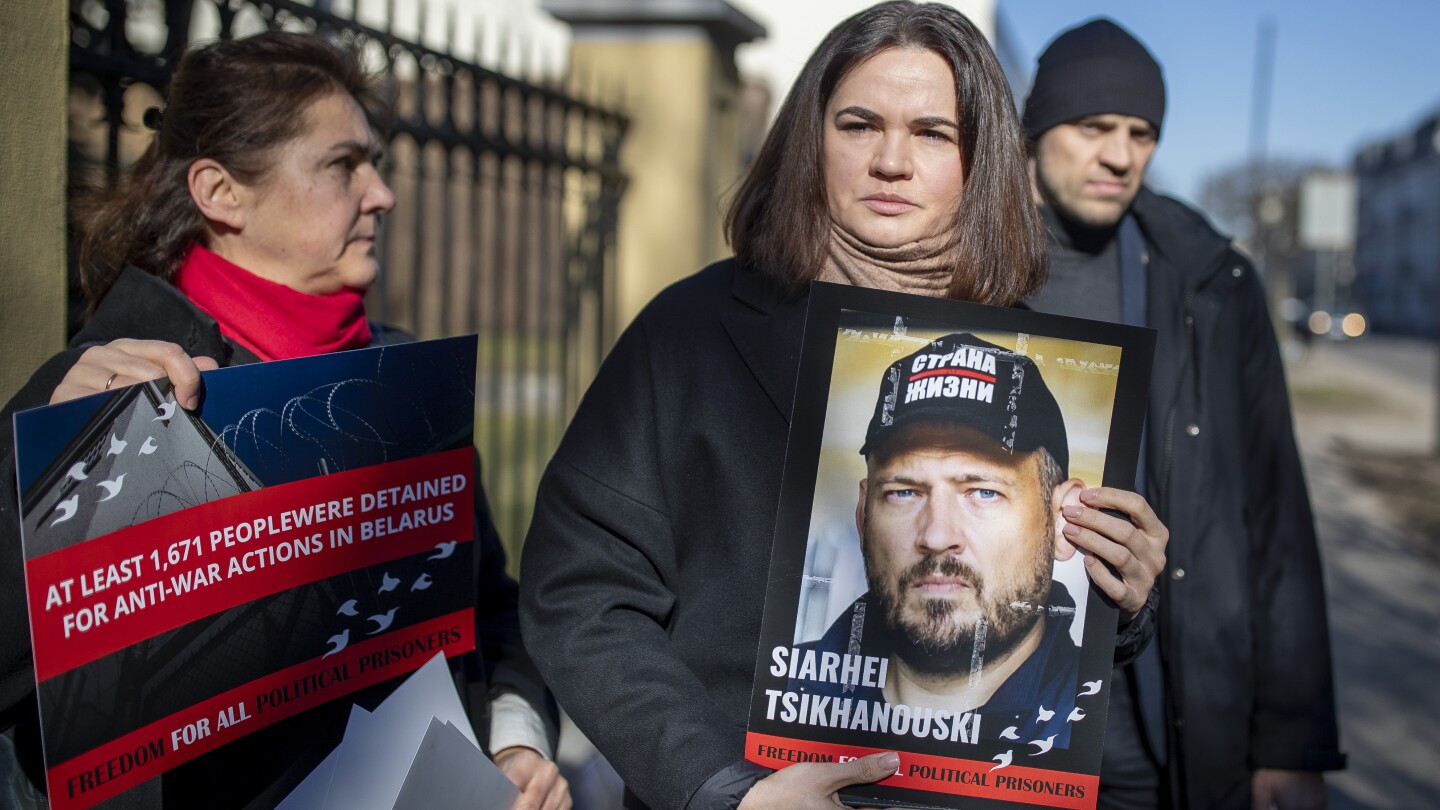TALLINN, Estonia (AP) — Belarus’ exiled opposition leader said Thursday that she hasn’t heard from her imprisoned husband for 421 days.
Sviatlana Tsikhanouskaya said holding her husband incommunicado is part of the government’s repressive policies.
Siarhei Tsikhanouski has been behind bars since being arrested in 2020 after announcing plans to challenge Belarus’ authoritarian President Alexander Lukashenko in a vote that year. After Tsikhanouski was arrested, his wife ran in his stead as the main opposition candidate but was forced by authorities to leave the country after the election.
Tsikhanouski has been sentenced to 19 ½ years, and his wife said that by holding him incommunicado authorities are trying to “persuade Siarhei that everyone has forgotten him.”
“For more than a year I don’t know about Siarhei’s condition, I don’t know if he was allowed to receive any cash and whether he has any toothpaste or toilet paper,” she said.
Along with Tsikhanouski, several top opposition figures also have been held incommunicado for more than a year.
They include Maria Kolesnikova, a leading opposition figure serving an 11-year prison sentence who hasn’t been heard from for 443 days, Mikola Statkevich, an opposition activist whose relatives haven’t heard from him for 448 days and lawyer Maxim Znak who has been held incommunicado for 449 days.
“It’s our duty to speak loudly about them and support them in every possible way,” Tsikhanouskaya said.
The August 2020 election that handed Lukashenko his sixth term in office was denounced by the West and the opposition as fraudulent and triggered a massive wave of protests. Authorities responded with a sweeping crackdown that saw 35,000 people arrested and thousands brutally beaten by police. Many top opposition figures were arrested and given long prison terms, while others fled abroad.
The Belarusian authorities have ignored U.N. requests to provide information about the opposition activists who have been held incommunicado.
Belarus’ leading human rights group Viasna counts about 1,400 political prisoners in the country, including the group’s founder, Nobel Peace Prize laureate Ales Bialiatski.
Viasna’s representative Pavel Sapelka said that holding opposition activists incommunicado was a “form of torture not only for the political prisoners but their families.” He described it as part of “strategy of punishing political opponents and concealing evidence of cruel treatment and torture.”

